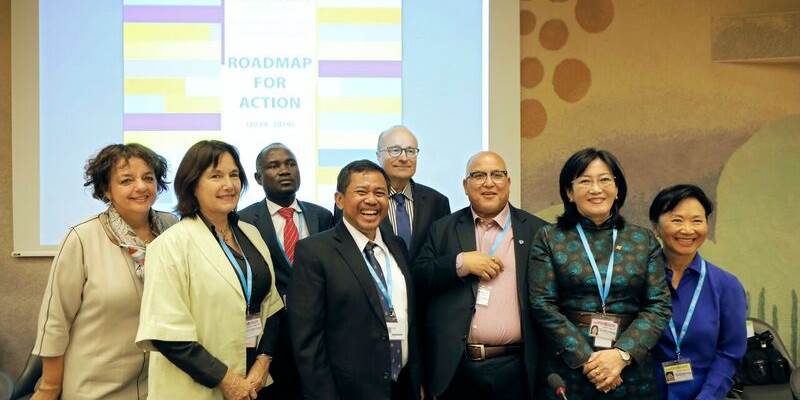Since 2013, the Norwegian development agency Norad has worked with the «Gender, Equity, Rights» (GER)-team in WHO to develop, test and scale up implementation of methods to identify who is left behind, and to include these people in the health services. This includes Health Inequality Monitoring to identify how is left out, use of “Innov8” for integration of equity-oriented, rights-based, and gender responsive approaches into national health planning processes.
At the side event, representatives from Chile, Indonesia, Mongolia, Mozambique and Nepal shared their experiences from the use of various tools and operational approaches to “leave no one behind”.
One of the new tools is the “Innov8” method, which originated in Chile. The Minister of Health from Chile emphasized the importance of working systematically to realize sexual and reproductive health for all, including those that are most vulnerable. As social determinants of health lie at the heart of health inequities, the Minister stated that “it is in our hands to change this reality that affects young women.”
The National Director for Public Health in Mozambique raised the importance of using data that bring out differences that could be masked by averages, such as geographical, gender og age-related differences, and to focus on those most in need.
The Chair of the Women’s Environment and Development Organization, Dr. Soon-Young Yoon talked about women’s shrinking place in the society, and stated that women and girls are not only being left behind, they are being pushed behind. The importance of securing the instruments to measure inequality and include those that are now excluded is therefore more crucial now than ever. The team leader of Gender, Equity and Human Rights at WHO/Headquarters, Dr. Veronica Magar, expressed optimism for the future, despite current challenges.
“Leaving no-one behind” is criticized of being a lofty goal. This side-event aimed to showcase specific actions and approaches to operationalize the goal, and to identify a range of practical approaches for national authorities to implement in order to truly leave no-one behind as we progress towards the 2030 agenda.
